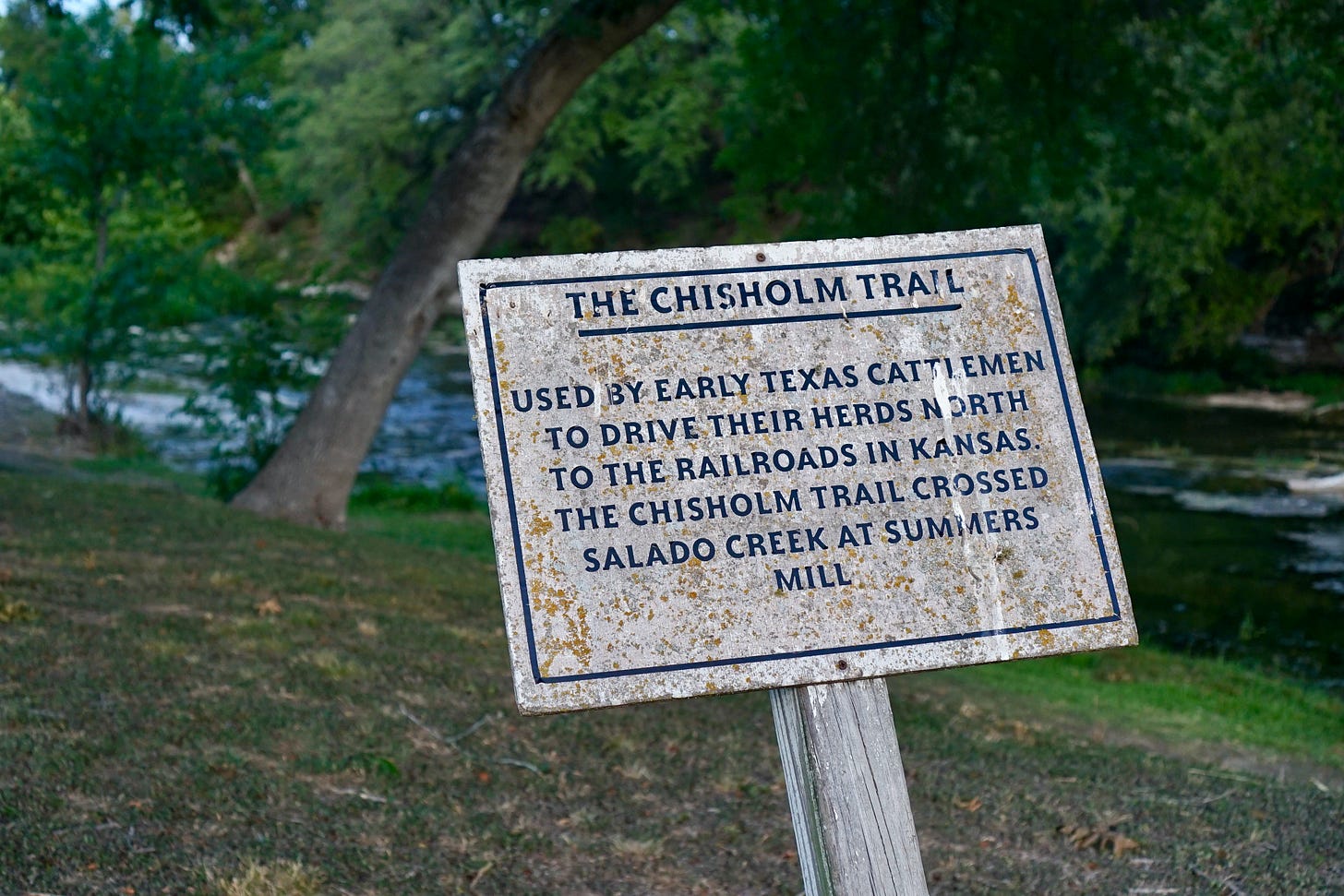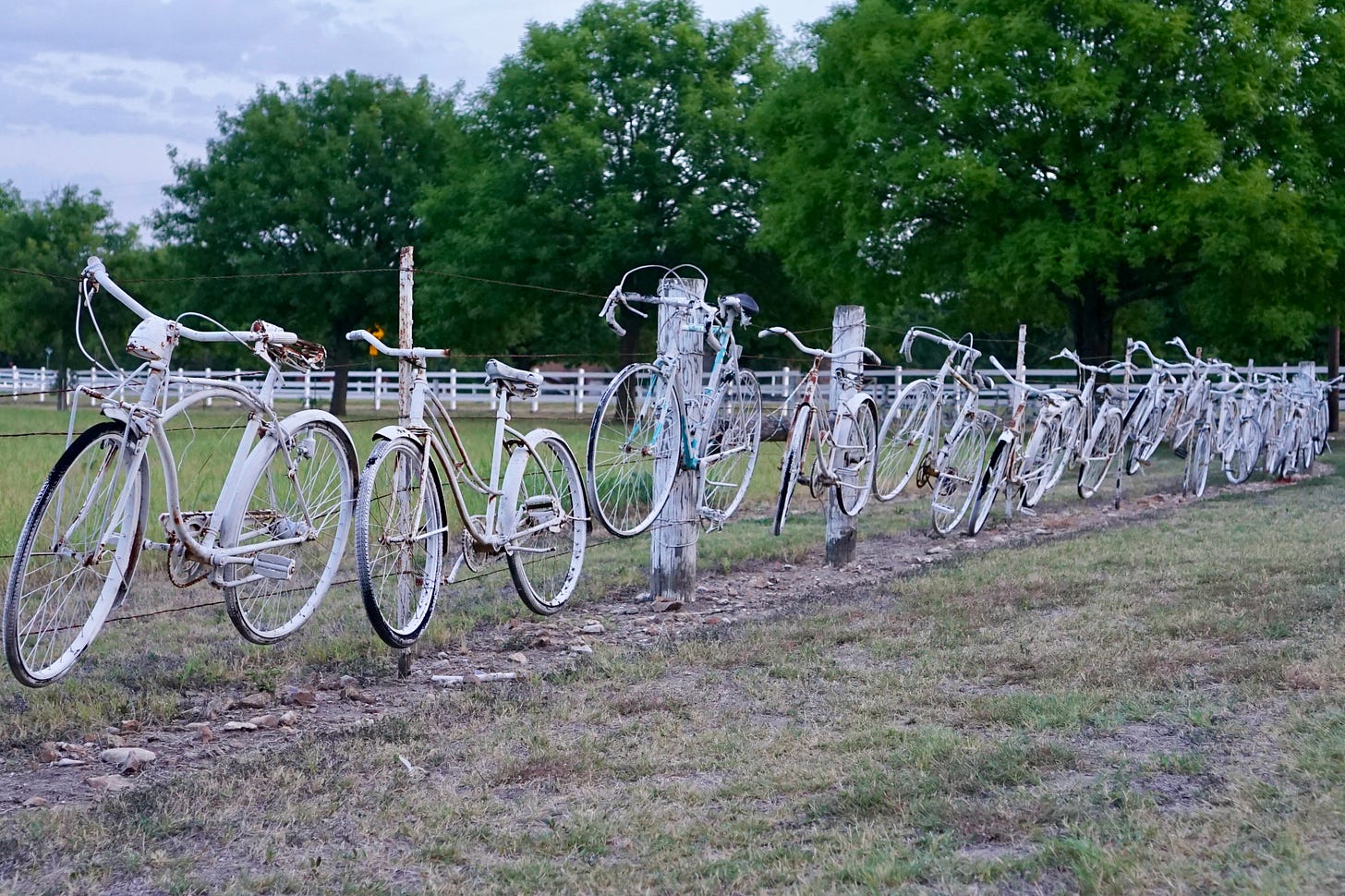Retreat!
Taking Time to Take Time to Relax
This week I retreated to Summers Mill Retreat and Conference Center in Belton, Texas. It’s a beautiful place.
As a Christian, I think the practice of the retreat is an important commitment to take up, establish, and observe. My first individual retreat took place during a spiritual formation course while I was a student at Dallas Theological Seminary. I stayed in a screened shelter at Cleburne State Park. While there I got very cold, but survived the night, and wrote a life-vision document that I still reflect on from time to time.
It has been a while since I’ve gone on retreat. In December 2019 I went on a solo camping trip to Goliad State Park & Historic Site. In November of 2020 I visited the Balcones Canyonlands National Wildlife Refuge.
I enjoy solitude and silence, the opportunity to read, to be outdoors, to write in my journal, and to exercise. The discipline of retreat is part of my rule of life, or how I follow Jesus and seek to apply his teachings day by day, week by week, and year by year. My retreat to Summers Mill is in keeping with a commitment I make each year: to go on retreat.
You don’t have to go away to a retreat center in order to retreat. After all, Luke 5:16 records that, “Jesus often withdrew to lonely places and prayed.” He didn’t check in to a hotel room or go to a hidden fortress. But he did retreat.
Jesus was and is the Son of God, and if it was necessary for him to step away from the hustle and bustle of everyday life while he walked the earth as a human being in order to pray and commune with the Father and the Spirit, then maybe, just maybe, it would be a welcome prescription for me.
The problem is that I’m not a very good retreatant.
I like the idea of retreats. I like to talk about retreats. I like to plan retreats. I like to write down “retreat” as one of my yearly goals.
But I always take too many things to do. I always try to pack too many things into one day. My productive self goes into hyperdrive when I consider resting. When I create the time and space for renewal, I try to wear myself out.
There is a little chapel here on the grounds, constructed under the direction of Paul and Jane Meyer and dedicated to the memory of their mothers and grandmothers, whose lives are chronicled in brief inside the chapel. Each are described as great women of faith. Paul Meyer’s name has been familiar to me for years. The Paul J. Meyer Arena is part of the Ferrell Center, home of Baylor basketball, volleyball, and other university happenings.
I visited the chapel on my first day at Summers Mill. There is a sign on the door notifying those who enter that the chapel is reserved for quiet reflection and prayer. The interior is very simple, modeled after a small church in Michigan, where one of the Meyer’s ancestors grew up. A few wooden pews, an elevated platform, a pulpit, a few scattered hymnbooks, a few photographs, simple stained glass, an acrylic painting of a rural Texas community, and a small organ. The Bible on the pulpit was opened to Psalms.
I sat down for a few moments. And while I sat, I heard, “Ben, you need to learn to relax.”
That’s right. I do.
It’s easier to relax, and to rest, when you keep in mind that you’re small, finite, and in God’s good hands. That’s a principle that not only translates to the practice of retreat, but sabbath, too. Sabbath observance is a command, and we’re wise to keep that in mind. But Jesus is the Lord of the Sabbath, and the New Testament writers claim Jesus fulfilled the Sabbath. Sabbath observance is no longer law, but it is still wisdom. Our rest is no longer ordained for a day, but established for eternity. We have a different attitude toward our doing because of what Christ has done.
We now “do” as workers in God’s field. We sow seeds; God gives the growth. We trust that God is working through us, alongside us, and with us. God appoints the times and places we are to live. Our days are written in God’s book. There is work to do, appointed by God, which will bring forth a harvest in God’s time. That work deepens in meaning and increases in significance when done in communion with God the Father, Son, and Holy Spirit. All we do must be done “unto the Lord,” if it is to last.
That’s what retreat is for, I suppose. To help us reframe, refocus, and reset; to think afresh about what we do and when we do and why we do, and to whom and for whom we exist. Then, we reengage. We return to the quotidian, the common, the everyday. God is encountered on retreat, in the lonely places, where we go to pray. God is also encountered as we advance. The same Jesus who told his disciples to “come away with me” also said “come, follow me.”
Jesus leads us away, and toward. Life is both leaving behind and embracing the new.
We retreat and rest; we advance and progress, all in God’s good timing.
Or so I’m learning.
Book Notes
Still reading Ron Chernow’s Washington.
I’m taking Seneca’s Selected Letters about ten pages at a time. I finished Gordon T. Smith’s Your Calling Here and Now.
I’m moving quickly through Robert Creech’s Pastoral Theology in the Baptist Tradition.
I continue to read Michelle Ule’s Mrs. Oswald Chambers: The Woman Behind the World’s Bestselling Devotional.
Sights and Sounds
It has been a weird week for movies. I watched Tinseltown (1997), Harakiri (1962), and Recoil (2011). The last movie stars Steve Austin and Danny Trejo. It is exactly what you think.
Last Words
On the blog: a couple of thoughts inspired by prayers of humility, LBJ had a phone by his pool but I think digital connectivity is overrated, Robert Creech helped me think about how pastors in the Baptist tradition help others listen for God’s call, and Gracy Olmstead wrote a great essay on life without a car and I wanted to riff on her discoveries about walking.
Before I go, standard copy.
If you are receiving this newsletter in your email inbox, great! If you are a reader who comes my way via social media but you'd like to subscribe, subscribe here.
Hit play on the tape with the appeal for social media followers, then: Facebook, Twitter, Instagram. I’ve thought about shutting all these down.
I’m not checking those accounts, but content does push there. If you use social media as your news feed, follow there. Share my stuff, if you like. Maybe those services are for you. They are not for me. I’ve been a happier and less anxious person since I quit checking social media.
Publishers consider social media numbers when extending offers or invites to write. Likes, follows, etc. help a person like me make their way. Lastly, subscribe to the blog by submitting your email to the "Updates to Your Inbox" form in the sidebar. We're at 1,389 across platforms. Help me get to 1,500+.
That's the business.
If you like this post, click the heart and kindly share it with others. If you’re coming my way because someone shared this with you, subscribe.
Be well this week. Bless others.
Best,
BAS
P.S. - This bicycle installation is a signature at Summers Mill.






